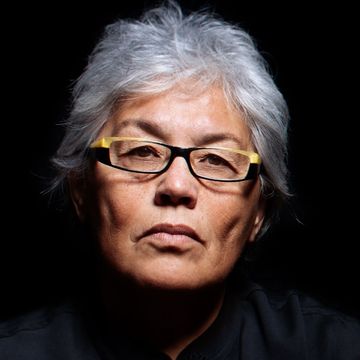On January 10, 1963, one month before she took her life, Sylvia Plath recorded her last session with the BBC in London amid snowy, frigid weather that brought the city to a standstill. She reviewed Contemporary American Poetry, an anthology edited by Donald Hall that showcased works from writers as varied as Robert Lowell, John Ashbery, and Denise Levertov—the collection included only seven women—and concluded with a shout-out to Galway Kinnell. Plath had underlined and starred sections throughout her Penguin paperback edition, now archived at the University of North Carolina, but nothing specific was noted about Gary Snyder’s “Hay for the Horses.” (In mood and technique, Louis Simpson’s and James Merrill’s contributions seem closer to Ariel.) And yet she’d read Snyder’s poem while in her final blazing throes, and I sense a kind of handshake as the Beats and the Confessionals—or Beat-adjacent and Confessional-adjacent, as is the case here—wrangled the challenges of a postwar poetics.
We don’t know whether Snyder read Plath in the New Yorker and other magazines, but they were breathing the same poetic air from different points on the globe. At first blush, they are a study in contrasts. Although just a rung above the working class, Plath was a product of elite New England institutions; Snyder had done stints as a seaman and a logger in the Pacific Northwest. He was drawn to the authors and landscapes of China and Japan; her poetry nods to European history and forms. She was a type A striver; he was Zen-mellow. But both poets were moving past Eliot’s “symmetry, intellect, irony, and wit”—Hall’s turn of phrase, highlighted by Plath in her paperback—and embodying a vibrant “use of common American speech, an indigenous language increasingly distinguishable from English.… This colloquial direction makes much of accuracy, of honest speech.” Both were tuning their ears to accentual cadences: Plath was shedding the stylized diction of Marianne Moore, while Snyder had never bothered. Both were flexing political muscle.
In his introduction, Hall sneeringly dismissed the Beats, some of whom were Snyder’s friends: “I have not mentioned the Beat Generation, incidentally, because it is an invention of weekly news magazines. Insofar as it has made some very good lines of poetry, it has belonged to the colloquial tradition.” He may have been thinking of, say, Allen Ginsberg’s first-person, talky “America” and “Howl,” but he chose the less controversial Snyder. “Hay for the Horses,” featured in Snyder’s debut, Riprap and Cold Mountain Poems (1959), allows its protagonist, a 68-year-old hay baler, to speak directly to the narrator: “ ‘I first bucked hay when I was seventeen / I thought, that day I started, / I sure would hate to do this all my life. / And dammit, that’s just what / I’ve gone and done.’ ” Snyder also deploys quotation marks—speech—in “Thin Ice.” He’s at ease with a conversational voice, much as Plath leans into slang (“I do it so it feels like hell. / I do it so it feels real”) or the sardonic exclamations “my god!” in “A Birthday Present” and “The Arrival of the Bee Box.” Their embrace of vernacular harks backs to Whitman.
But Germanic accentual gravity keeps both poets grounded. Snyder tucks stresses within short lines, as in “Mid-August at Sourdough Mountain Lookout”: “Down valley a smoke haze / Three days heat, after five days rain / Pitch glows on the fir-cones.” His love of spondees percolates throughout Riprap: in the fine “Praise for Sick Women,” he thickens his surfaces like spooning cream into coffee: “you young girls / First caught with the gut-cramp / Gather punk wood and sour leaf.” Or this line from “Hay for the Horses”: “The old mare nosing lunch pails”—two unstressed syllables nestled among five stressed, a riff on Gerard Manley Hopkins’s poems, which Plath would surely have noted.
Plath came to sprung rhythms via Ted Hughes, whom she met at a Cambridge bacchanal in late February 1956, just as Snyder was composing Riprap. Until then, she’d mostly produced mannered, academic lyrics; even this drunken, lusty encounter inspired the loosely iambic tetrameter “Pursuit.” As their whirlwind romance deepened, though, she followed Hughes’s lead into a garden of accentual delights. That spring, she’d write lines such as “From under the crunch of my man’s boot / green oat-sprouts jut” and “Sweet salts warped stem / of weeds we tackle towards way’s rank ending.” She would play with sprung rhythms for the rest of her career.
At roughly the same time, Snyder and Plath were experimenting (indulging?) in slant rhymes, assonances, and consonances, energizing their lines, a hallmark of other American midcentury masters, among them Lowell, Theodore Roethke, and Gwendolyn Brooks. In Riprap, “whole towns shut down,” “wet rice / Dry rice, die on the hillslope,” and “A huge setter pup nap on the dusty cot. / High rotten stumps in the second-growth woods / Flat scattered farms in the bends of the Nooksack.” For Plath, there’s flesh “the grave cave ate,” and “blacks crackle and drag.” Each poet claims the moon as a cold, distant muse.
Again, there’s no strong evidence that Snyder knew of Plath before her death, and perhaps she read only “Hay for the Horses.” But their ears were simultaneously engaging a shared moment, an emerging music, and a commitment to craft; both allude to this shared moment through metaphors of physical labor that indicate the larger American aesthetic shift toward the common, and also paralleled each poet’s own unswerving commitment to work. Snyder directs the reader in his title poem, “Lay down these words / Before your mind like rocks.… Before the body of the mind / in space and time.” And in “Words,” Plath depicts her art as “Axes / After whose stroke the wood rings, / And the echoes!” More than six decades later, these lines still resonate, harbingers of an authentically American literature, forged in the crucibles of the Depression and world war and melded by an expansionist empire abroad and civil strife at home.•
Join us on May 16 at 5 p.m. Pacific time, when an array of panelists and CBC host John Freeman, with an appearance by Snyder, will gather to discuss Riprap and Cold Mountain Poems and The Practice of the Wild. Register for the Zoom conversation here.
Hamilton Cain reviews fiction and nonfiction for a range of outlets, including the New York Times Book Review, the Wall Street Journal, the Washington Post, and the Boston Globe. He lives in Brooklyn, New York.












